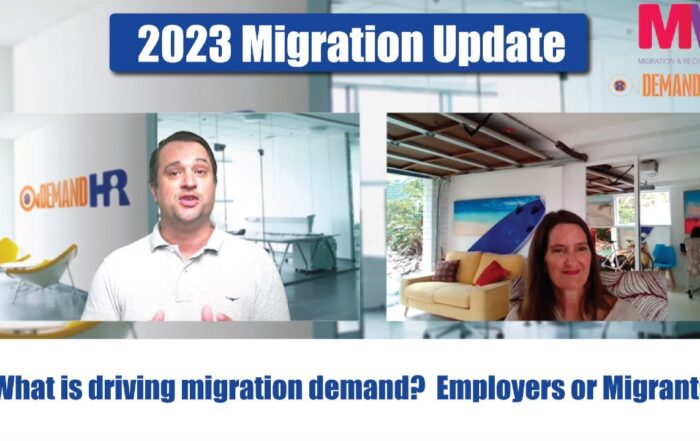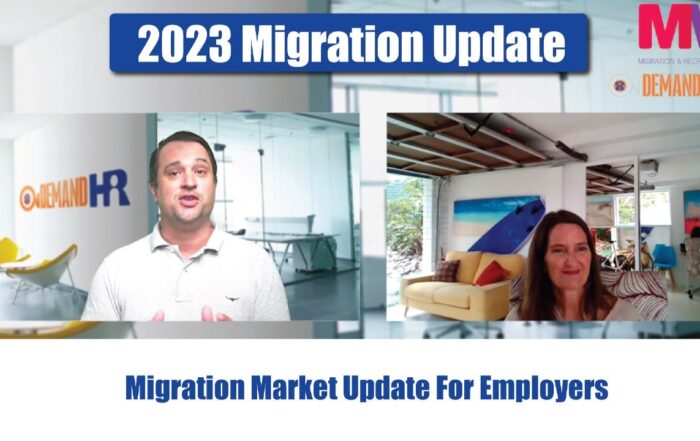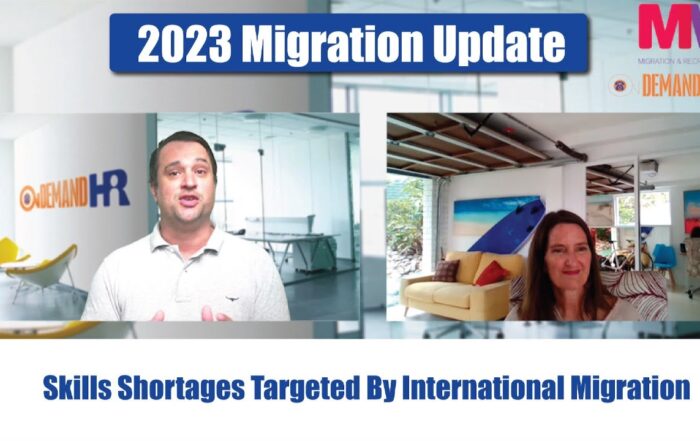Mental Health & Returning To The Workplace
Many businesses are beginning to plan to reopen their doors and ask their employees to return to the workplace. In a recent chat with Matthew Counsel from Altius Group, On Demand HR asked what mental health considerations businesses should take into account.
Please see below for a transcript of this video.
Share the HR or workplace relations challenge facing your business and one of our experienced consultants will be in touch within 24 hours with a strategic action plan or discover the best strategy yourself by accessing out free online training library.
Transcript
0:02
That’s great that Matt really appreciate that. So I guess just one final sort of question a little bit of, you know, probably a little bit off topic. Is there anything else you think employers should be doing? Obviously, we’ve spoken a lot about the EAP services that people sense offer, is there anything else you think employers should be doing to try and assist with managing the mental health of their employees? Would you make any other suggestions for for people out there?
0:25
In terms of businesses, at the moment, I think it’s really important for businesses to have their finger on the pulse of what the issues are that their employees are facing. And if any employer, particularly I’ll speak I’m in New South Wales, at the moment, I can sort of speak about our environment coming out from a prolonged lockdown. If employers don’t believe that there’s going to be some form of anxiety around return to work, return to normality return to the offices. If they don’t feel that there’s going to be some resistance in getting people back in the office. Honestly, they’re putting their head in the sand. We’ve gone through such a huge change in the way that our world has operated in the last two years. I truly encourage employers to start looking at that planning of Return to Work management, part of that’s going to be change management, part of that’s going to be educating their employees and trying to, you know, develop ways of restructuring their work to get people back into the workforce. And part of that is going to be creating a sense of well being and making sure that employees feel that their employer is aware of these issues, and they’re connecting with them. And they’re encouraging them and supporting them through this. So as much as you know, some great news has come out recently around our vaccination numbers and things might start opening back up. I think, for a lot of employers, we’re not out of the woods yet. There will be opening up as businesses, but I think the mental health impacts the engagement impact and the anxiety around return to work is something that we’re going to be dealing with and supporting clients through well into 2022
2:10
So I think that certainly one thing that I’ve observed and one thing I’ve actually spoken about it’s a recent CPA conference is that I see that there’s going to be a number of labor market considerations here as well, I think that what we’re going to inevitably see just on that returning to the office, so to speak, mentality, is that I think employers will almost now be competing with each other on what degree of work outside of the office is offered, because, you know, quite frankly, what this, you know, the last few years has shown us is that there are particularly white collar roles, a lot of white collar roles, that really don’t need a hell of a lot of office style, you know, presence and, you know, save and except for a few meetings, which even these days can be done remotely. It will be really interesting to see that that side of the equation. The other challenge, I would say as well on the labor market will be certainly around, you know, vaccination or not vaccination. And I think that the reality is that when you’ve got an unemployment rate of 4.9%, the not vaccination rate is going to be definitely higher than that. So we’ve been anticipating that there’s going to be some challenges for employers in terms of the labor market. To give you an example, we’ve got one employer next week, that’s going to be without 10 of their staff. And frankly, you know, that that’s going to seriously disrupt their business. And it’s going to be really interesting to see how how employers do navigate this because you know, whilst it may sound all well and good to make certain things mandatory I’m not sure about the practicalities of, of doing that. But so just going back into what you said about certainly about that return to the office. I think that’s a great point. I think I think there’ll be probably a couple of things there at play. Certainly the labor market challenges what people expect from white collar work going forward, and also probably, you know, vaccination or not vaccination and risk levels, I suppose there will be factors at play. So really appreciate that. Matt, is there any any other thoughts or final thoughts on the whole general topic of mental health? Before we wrap up today?
4:42
Probably just touching on the trend of the trend of the statistics in the last 18 months, let alone year on year before that which were already trending in the wrong direction. This is all escalated and is all rapidly accelerated what we’re already seeing. Which is a combination of a decline in our mental health as a community and a society but also a rising self awareness of people. And it’s great to see people talking about it, having these great conversations. It’s great to see more people reaching out for services, which is good. So for employers, it’s not going to go away. And you know, even from a WHS perspective, the Code of Practice around psychological risk has now been implemented. So if the employer hasn’t really got comfortable in addressing psychological risk and understanding mental health, I think employers need to get to that point. They need to get comfortable with it. They need to be able to support their employees with it because it is impacting on their business and it’s not going away.






